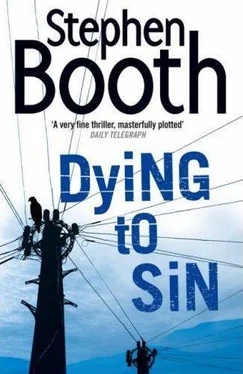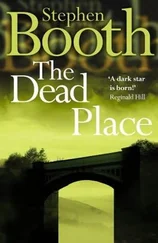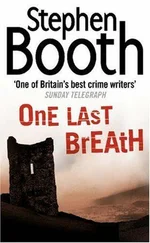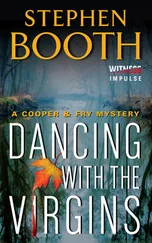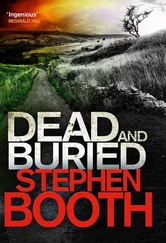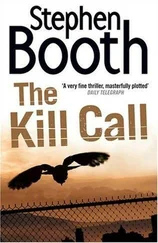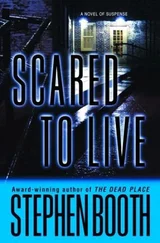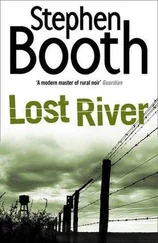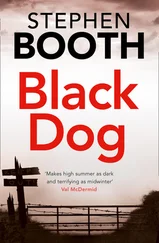Stephen Booth - Dying to Sin
Здесь есть возможность читать онлайн «Stephen Booth - Dying to Sin» — ознакомительный отрывок электронной книги совершенно бесплатно, а после прочтения отрывка купить полную версию. В некоторых случаях можно слушать аудио, скачать через торрент в формате fb2 и присутствует краткое содержание. Жанр: Полицейский детектив, на английском языке. Описание произведения, (предисловие) а так же отзывы посетителей доступны на портале библиотеки ЛибКат.
- Название:Dying to Sin
- Автор:
- Жанр:
- Год:неизвестен
- ISBN:нет данных
- Рейтинг книги:3 / 5. Голосов: 1
-
Избранное:Добавить в избранное
- Отзывы:
-
Ваша оценка:
- 60
- 1
- 2
- 3
- 4
- 5
Dying to Sin: краткое содержание, описание и аннотация
Предлагаем к чтению аннотацию, описание, краткое содержание или предисловие (зависит от того, что написал сам автор книги «Dying to Sin»). Если вы не нашли необходимую информацию о книге — напишите в комментариях, мы постараемся отыскать её.
Dying to Sin — читать онлайн ознакомительный отрывок
Ниже представлен текст книги, разбитый по страницам. Система сохранения места последней прочитанной страницы, позволяет с удобством читать онлайн бесплатно книгу «Dying to Sin», без необходимости каждый раз заново искать на чём Вы остановились. Поставьте закладку, и сможете в любой момент перейти на страницу, на которой закончили чтение.
Интервал:
Закладка:
‘The accession states.’
‘Yes. The Czech Republic, Lithuania, Estonia, Poland, Hungary, Slovakia, Latvia and Slovenia. Individuals from those countries are entitled to come to the UK and work, but they have to register with the Home Office. Once you’ve been working legally in the UK for twelve months you have full rights of free movement and you no longer need to be on the Worker Registration Scheme.’
‘Twelve months?’
‘It’s a critical time period, isn’t it?’
‘Absolutely.’
‘The thing is, some employees don’t bother. It works well for the larger firms, but not for the smaller ones who employ a couple of people. And this isn’t exactly Bernard Matthews.’
‘The turkey man?’
‘My contact says Bernard Matthews employs a thousand Portuguese workers in Great Yarmouth. But that’s a different kettle of fish. There are translators, bi-lingual trainers, everything done right. Small-scale employers are the problem. The paperwork is too much trouble for them, not to mention the cost. I imagine a lot of small farmers might think they can get away without paying seventy pounds to apply for a certificate. Besides, there’s the forgery issue. A worker brings along a standard letter from the Immigration Service and a forged passport, and a small employer doesn’t look twice. I was told to watch out for Ernest Xavier Ample.’
‘Who on earth is Ernest Xavier Ample?’
‘E.X. Ample,’ said Cooper. ‘It’s the made-up name the forgers take off sample work permits. No imagination, some people. Or perhaps they think it’s a normal English name.’
‘For heaven’s sake. So we could be looking at a procession of Slovaks, Lithuanians and Latvians passing through Pity Wood?’
‘Something like that,’ said Cooper. ‘Many of them might have gone on to be legit later, though, if they changed employers.’
‘Are there any gaps in the farm records? Periods that aren’t accounted for?’
‘No, but the accounts don’t come right up to date, of course. They end nine months ago. There was a period of time after Raymond Sutton gave up the farm and before the builders moved in. Only a few months, but it might just be in our time frame.’
‘And the farm was empty for that time?’ asked Fry.
‘Yes, and I bet there were plenty of people around Rakedale who knew it.’
‘Damn it, that doesn’t help us at all. Unless forensics can give us some evidence to narrow down the time of death, we’re going to have to concentrate on identifying the victims and establishing a link between them.’
‘Anyway, the most recent enterprise at Pity Wood seems to have been a poultry business,’ said Cooper. ‘That can be quite viable, I believe. But it’s no wonder the Suttons’ enterprise failed. They weren’t producing enough birds to make a realistic profit. It was hardly worth their while running the sheds.’
‘Is there much expense involved in raising poultry?’
‘A lot of overheads when the birds are housed indoors — heating, bedding, all their feed and antibiotics. But the main cost here seems to have been the wage bill. The way the Suttons ran the enterprise must have been pretty labour intensive. No capital to invest in machinery, I suppose.’
‘Or the way Tom Farnham ran it.’
‘Yes.’
‘So what about the wages? There must be a list of employees’ names?’
‘No, damn it,’ said Cooper. ‘Just initials. No indication of who they were, what they did, whether they were male or female. The only fact I can work out is that they seem to have employed a dozen people at any one time. But the initials change quite often, so the turnover of staff must have been quite high. It was unpleasant work, I suppose — killing, plucking and gutting.’
Cooper gazed out of the window, trying to make the facts fit. How did the number of workers represented by these wage bills correlate with the output from the poultry production units? Well, the answer was that it didn’t. Those workers must either have been sitting around doing nothing for a large part of their time — or they must have been doing something else entirely.
14
By the middle of the afternoon, the low sun was painting more colour into the landscape. As Cooper left West Street and drove down the hill into the centre of Edendale, the clouds over the eastern hills were developing yellow and pink tinges, and the moors were no longer such a dingy brown.
Friday was market day in Edendale. There were crowds doing their pre-Christmas shopping among the market stalls. Stout men with ruddy faces and waistcoats, tall men with long white sideburns, women in tweed skirts and headscarves — the sort of people you never saw at any other time, even in Edendale. It was almost as if they were employed by the council to give an authentic Dickensian flavour to the town for the festive season. Or perhaps they were members of some esoteric club, the Pickwick Papers Re-enactment Society.
But Cooper knew that was his new, town-dwelling self speaking. He knew who they were — these were the small hill farmers, the inhabitants of the more isolated homesteads, who travelled into town for market day.
By the time he reached the market square, it was already nearly four o’clock, and the market was being packed up for the end of the day. A procession of Ford Transits and Renault Trafics squeezed through the side streets, blocking every access while they loaded. Some of the stalls were clearing rapidly, their owners anxious to get home to their fires. Others took longer, stallholders staggering backwards and forwards in green and red Santa hats, shouting banter to each other. ‘I can manage on my own, don’t worry about me, I’ll be all right. You’re too old to be carrying these heavy boxes.’
Cooper found an empty slot to park the Toyota, thinking smugly that it wouldn’t have been quite so easy if he’d arrived in town an hour earlier. From here, he could easily walk the half mile to The Oaks.
He passed the town hall, its facade boasting four decorative pillars. The building had been edged with stones carved in a wavy pattern, and there were so many of them that local people had nicknamed their town hall ‘The Wavy House’.
His feet tangled for a second in the tattered remains of some party poppers discarded on the pavement. Office parties would be going everywhere tonight, as they had been last night — and would be tomorrow night too, of course. By the morning, council workers could expect to have far more than a few party poppers to clear up.
Within minutes of him arriving, the streetlights were coming on, and it was dark in the corners of the market square. Workers were stripping the awnings and dismantling the tubular steel stalls, clanging and chattering, wheeling racks of clothes over the cobbles. The dipped headlights of cars swept by from the roundabout. A tractor came towards him with a yellow warning light flashing, towing a trailer to collect the dismantled stalls.
When he entered the lounge at The Oaks to see Raymond Sutton, the other residents fell silent, watching him. He supposed they thought he was just a visitor. Perhaps they took him for Raymond’s grandson or something. They’d be asking Raymond questions about him as soon as he left. With a sinking certainty, Cooper thought it was probable that some of these old dears never got a visitor of their own from one year to the next.
The Oaks reminded him of the Old Vicarage, the nursing home his own mother had been in towards the end. On the surface, there weren’t all that many similarities. Residents of The Oaks were just old and needed some help with their day-today living. They were the frail and forgetful, the tired and confused, the ones who just couldn’t cope and had no one to look after them. They probably went on outings and had bingo evenings and sing-songs. Isabel Cooper had never had any need for those things.
Читать дальшеИнтервал:
Закладка:
Похожие книги на «Dying to Sin»
Представляем Вашему вниманию похожие книги на «Dying to Sin» списком для выбора. Мы отобрали схожую по названию и смыслу литературу в надежде предоставить читателям больше вариантов отыскать новые, интересные, ещё непрочитанные произведения.
Обсуждение, отзывы о книге «Dying to Sin» и просто собственные мнения читателей. Оставьте ваши комментарии, напишите, что Вы думаете о произведении, его смысле или главных героях. Укажите что конкретно понравилось, а что нет, и почему Вы так считаете.
